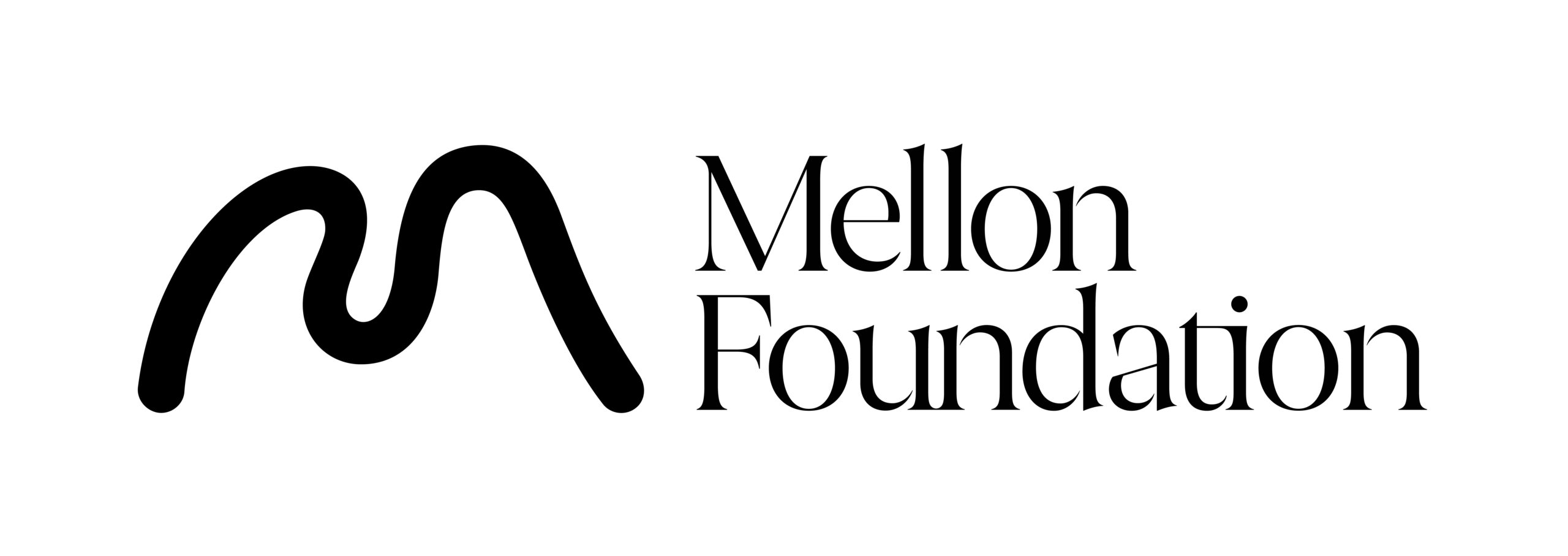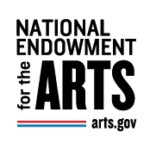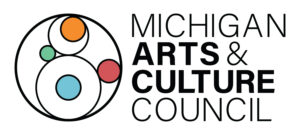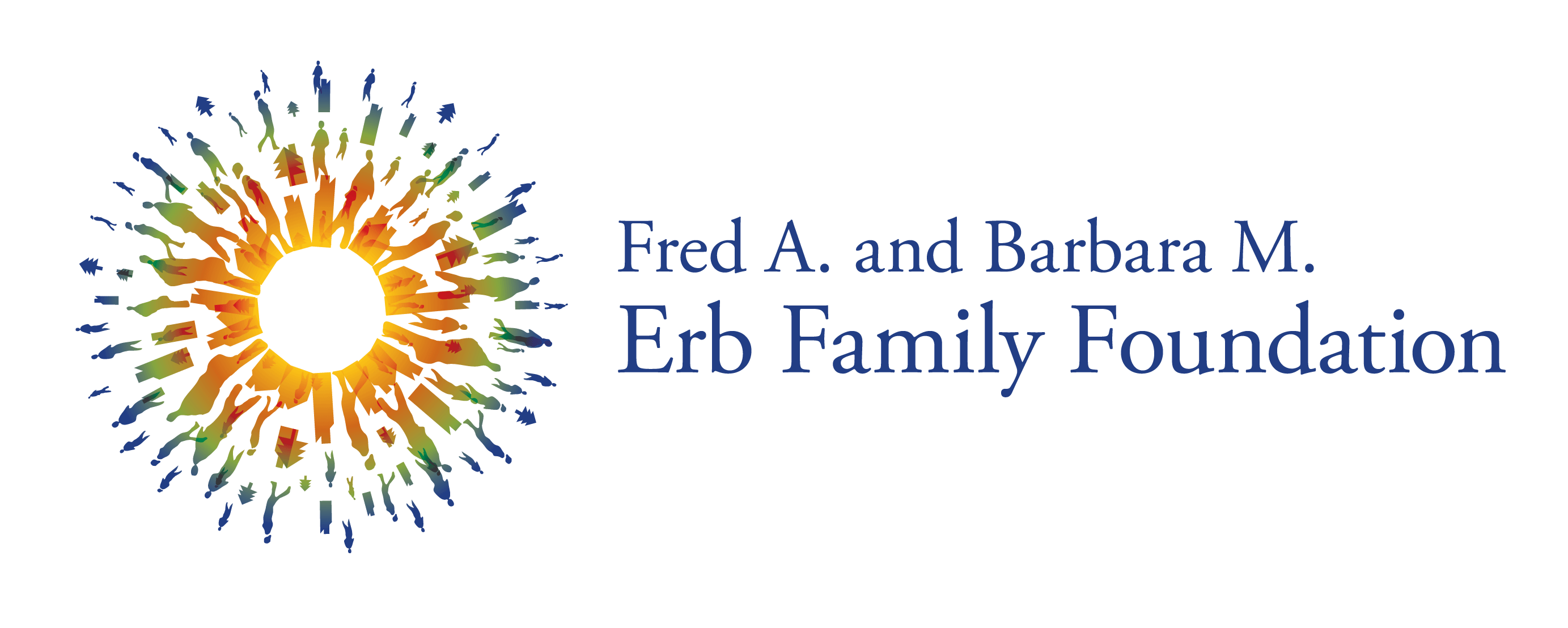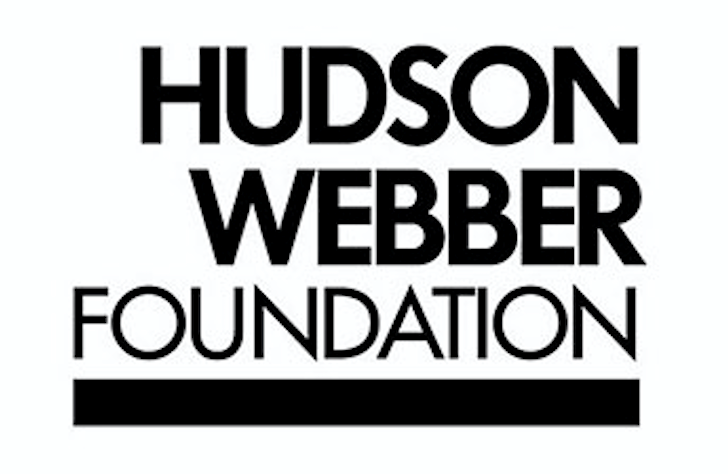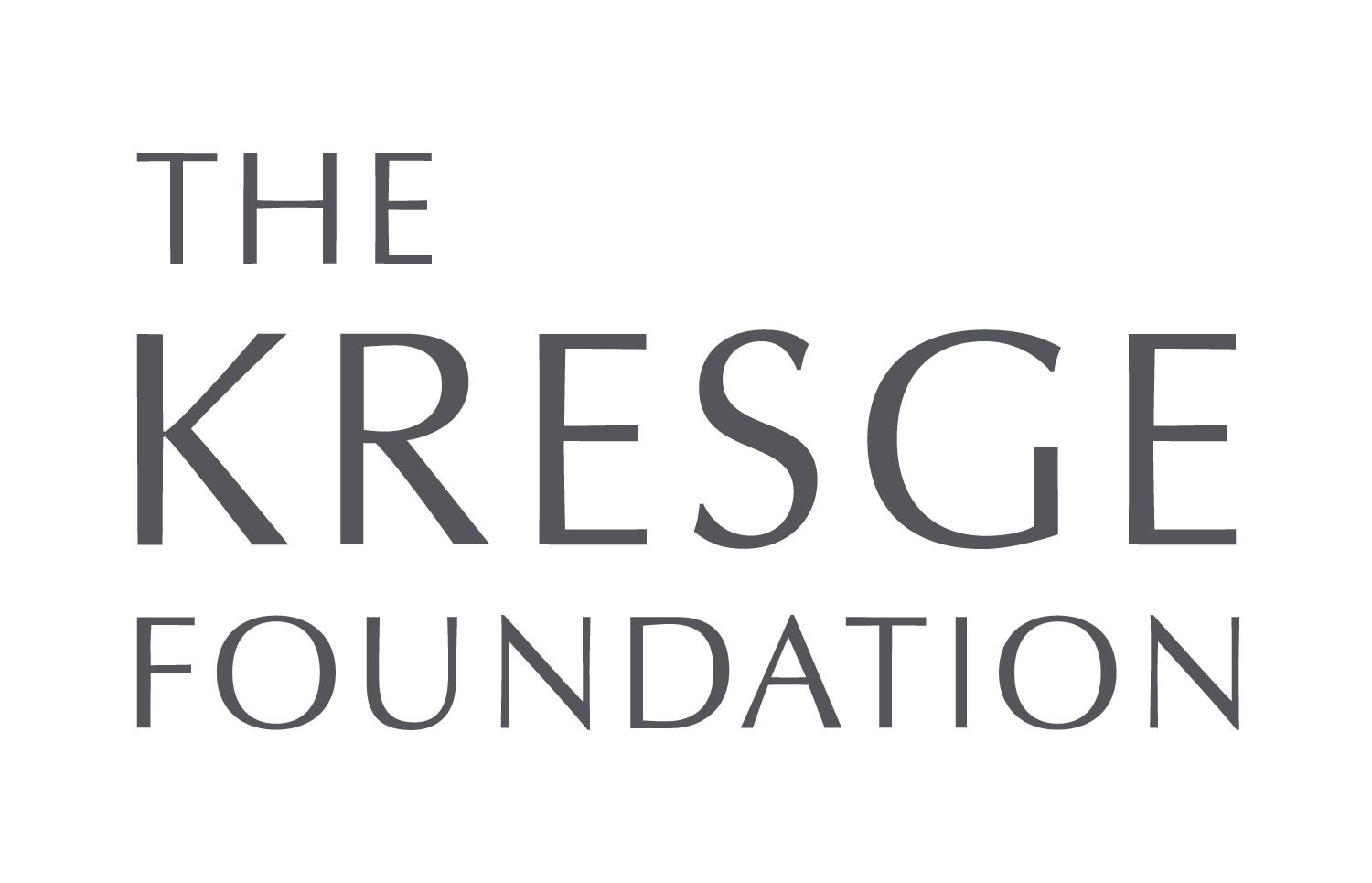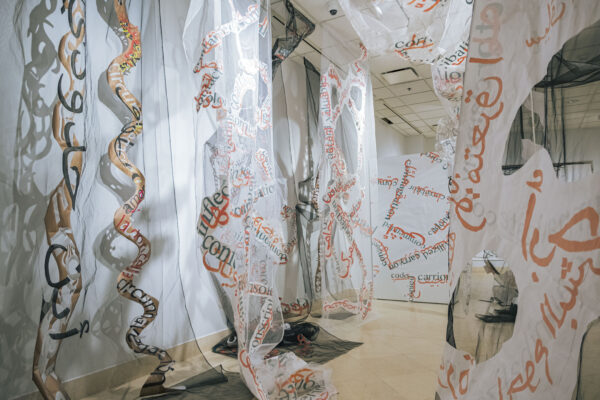Images: Colonial Colonnade (detail)
November 9, 2023 – June 1, 2024
Main Floor Gallery
Free with Museum Admission
EXHIBITION GALLERY
Pattern repetition and text are the foundation for Doris Bittar’s installation and other works in her first solo exhibition at the Arab American National Museum. Living in San Diego, she draws inspiration from the Arab, Indigenous and Latinx communities there. Bittar explores how colonization has affected language, among other aspects of culture. In a site-specific installation, she creates a space for reflection and free movement.
 Doris Bittar’s interdisciplinary art maps and explores migratory patterns that overlap national boundaries. She names her historically derived and migration patterns a form of “cultural DNA” as an invitation for interactive participation. Originally from Lebanon, Bittar received a BFA at the State University of New York and an MFA from the University of California San Diego where she has lived for three decades. She taught at the University of California San Diego, California State University San Marcos, and the American University of Beirut over a 25-year period and is a published writer on art and politics. With over 20 solo exhibitions, Bittar’s art has been in several prominent group exhibits including biennales in Europe and the Arab world. Housed in several public collections in the United States and abroad, she received awards and residencies at the Sharjah Biennial, Alexandria Biennial of Mediterranean Countries, Berlin-Stuttgart ifa gallery, Ravenna, Venice Biennale, and New York’s Alternative Museum, among others. Bittar is a core member of Gulf Labor and founded several nonprofits to promote Arab American community aspirations in Southern California. Bittar maintains the House of Palestine display in Balboa Park, has aided Syrian refugees in learning English as a second language, and is the founder of Protea Gallery, a nonprofit to promote Arab American art. www.dorisbittar.com
Doris Bittar’s interdisciplinary art maps and explores migratory patterns that overlap national boundaries. She names her historically derived and migration patterns a form of “cultural DNA” as an invitation for interactive participation. Originally from Lebanon, Bittar received a BFA at the State University of New York and an MFA from the University of California San Diego where she has lived for three decades. She taught at the University of California San Diego, California State University San Marcos, and the American University of Beirut over a 25-year period and is a published writer on art and politics. With over 20 solo exhibitions, Bittar’s art has been in several prominent group exhibits including biennales in Europe and the Arab world. Housed in several public collections in the United States and abroad, she received awards and residencies at the Sharjah Biennial, Alexandria Biennial of Mediterranean Countries, Berlin-Stuttgart ifa gallery, Ravenna, Venice Biennale, and New York’s Alternative Museum, among others. Bittar is a core member of Gulf Labor and founded several nonprofits to promote Arab American community aspirations in Southern California. Bittar maintains the House of Palestine display in Balboa Park, has aided Syrian refugees in learning English as a second language, and is the founder of Protea Gallery, a nonprofit to promote Arab American art. www.dorisbittar.com
This project is made possible in part by a grant from Michigan Humanities, an affiliate of the National Endowment for the Humanities.
With support from
